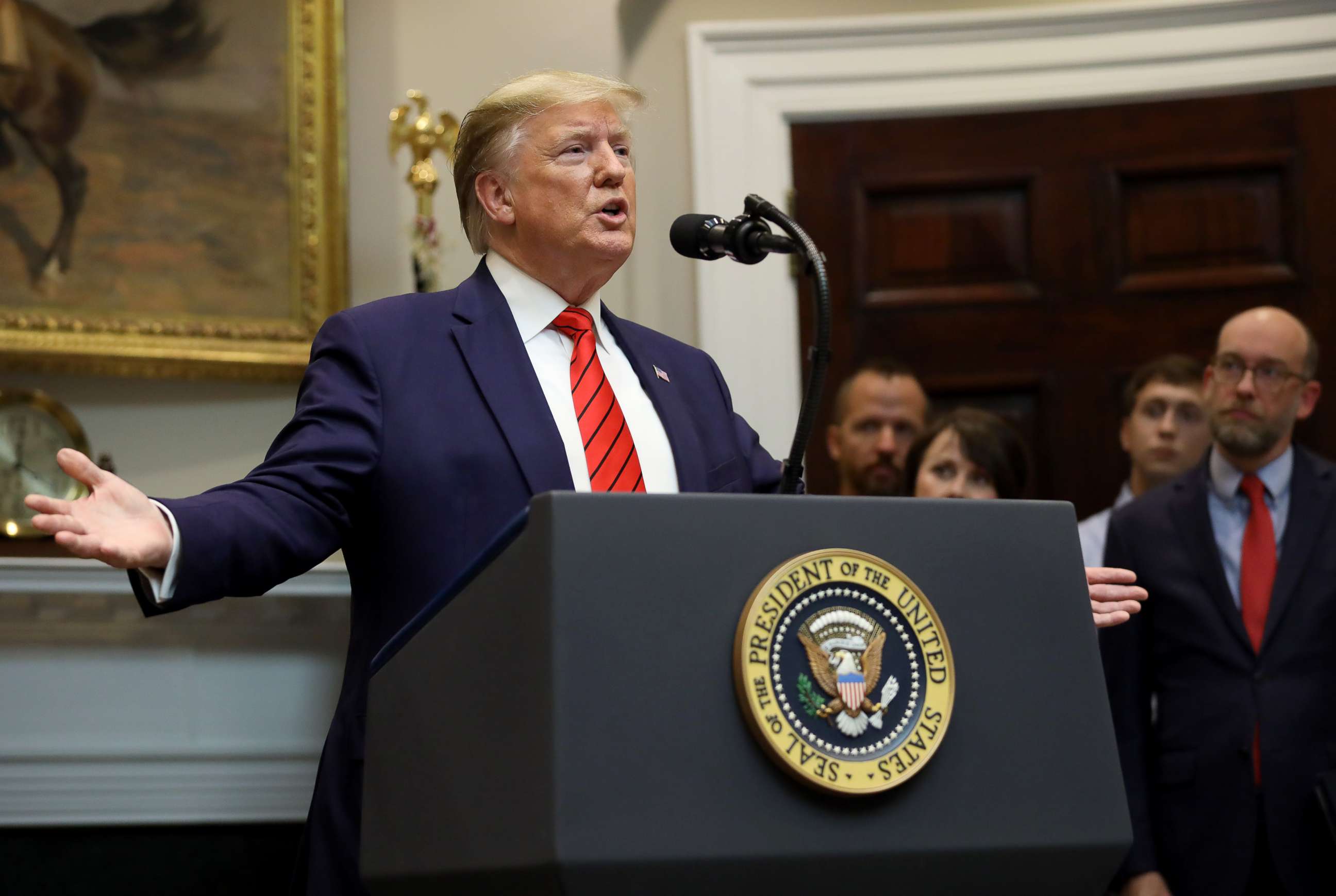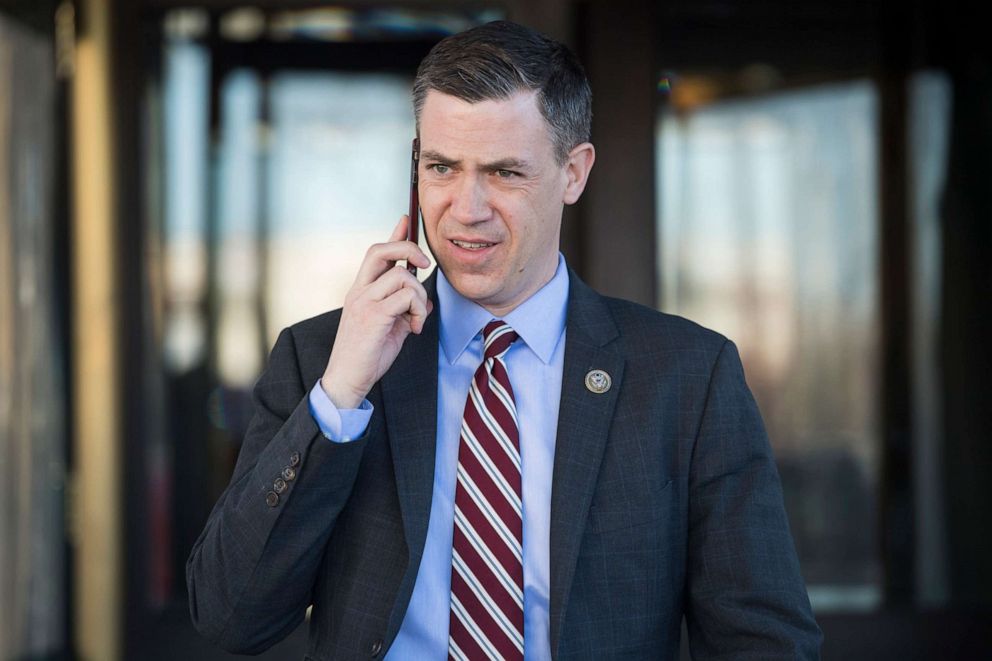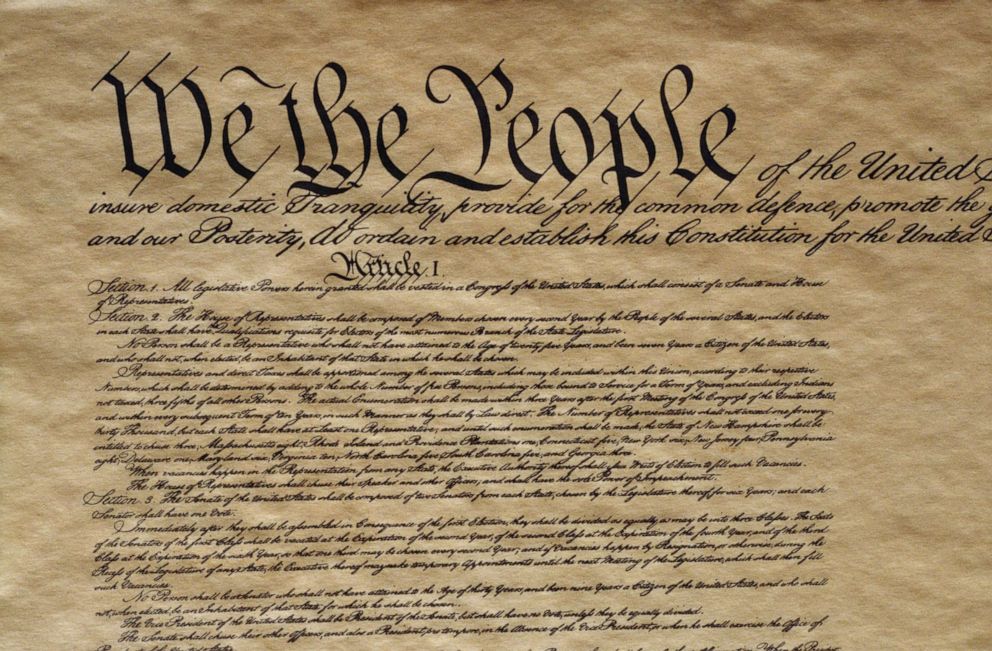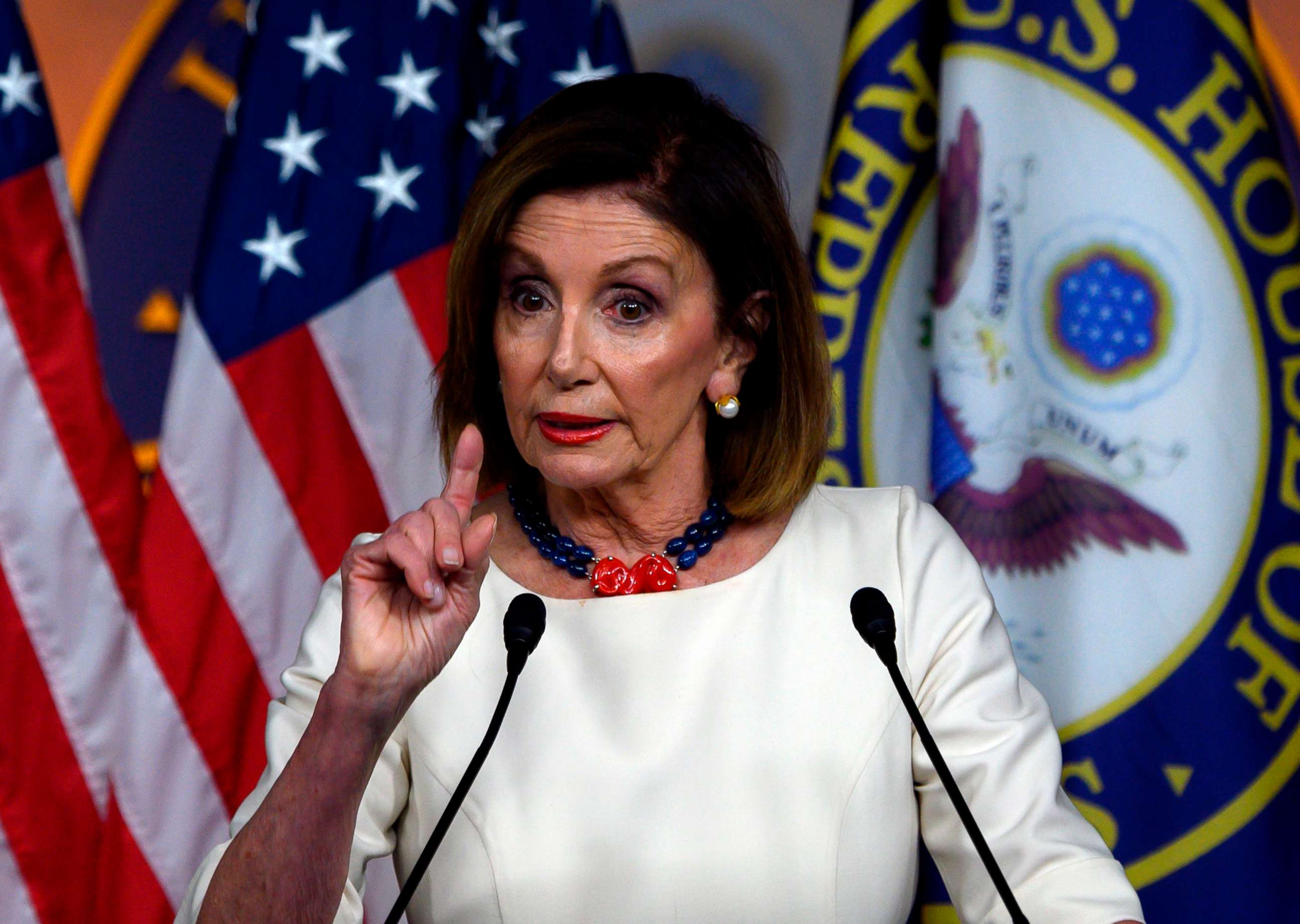Explaining the Pelosi-Trump standoff over a full House vote on an impeachment probe
Is the full House required to vote in order to launch an impeachment inquiry?
As House Speaker Nancy Pelosi and President Donald Trump faced off over the Democrats’ impeachment effort -- creating a potential constitutional crisis -- Pelosi's next move remained unclear on Wednesday as the White House and congressional Republicans demanded a full House vote on approving a formal inquiry.
Pelosi has rejected that argument -- for now. But betting that pressure may build on Pelosi to hold that vote, the White House appeared to have made some headway in steering the impeachment narrative away from the facts surrounding the whistleblower’s complaint, and toward the process dictating the investigation.
Asked on Wednesday whether he would cooperate with Pelosi's impeachment inquiry if it's authorized by a full House vote, Trump told reporters, "we would if they give us our rights, it depends," but then went on to repeat a long list of White House complaints and the qualifier, "if the rules are fair … if Republicans get a fair shake."

Here is an explanation of the politics and precedent driving the dispute:
'Know your power'
On Sept. 24, Pelosi announced that she, without a vote, was launching "a formal impeachment inquiry" after months of resisting pressure from some fellow Democrats. A Democratic aide close to the process drew the distinction between an "inquiry" and "proceedings" -- insisting that a House vote is not needed for the inquiry because it's only an investigation to tee up a potential impeachment proceeding based in the House Judiciary Committee.
But Republicans, raising questions about fairness, minority rights and the Constitution, argue that Pelosi’s power as speaker of the House does not give her the power to make that move unilaterally.
Instead, they point to the two most-recent impeachment investigations, where the House of Representatives voted as a body to proceed to scrutinize Presidents Richard Nixon and Bill Clinton.

"It must be noted that the impeachment process House Democrats have put in place is unlike any other in U.S. history," Rep. Jim Banks, R-Ind., observed. "In stark contrast, we haven’t had a vote this time. Speaker Pelosi, Rep. Adam Schiff and other Democrat leaders have acted unilaterally. They’ve written their own rules, held secret hearings and wielded committee power without any input from rank and file members."
That discrepancy has not been lost on the White House.
"In the history of our Nation, the House of Representatives has never attempted to launch an impeachment inquiry against the President without a majority of the House taking political accountability for that decision by voting to authorize such a dramatic constitutional step," White House counsel Pat Cipollone wrote Pelosi on Tuesday.
The precedent and the process
The White House repeatedly invoked the Constitution in that sharply worded letter.
"You have violated civil liberties and the separation of powers by threatening Executive Branch officials, claiming that you will seek to punish those who exercise fundamental constitutional rights and prerogatives," Cipollone noted. "All of this violates the Constitution, the rule of law, and every past precedent."

The Constitution, however, makes no mention of the procedure dictating impeachment and the House’s general counsel has argued in court that the lower chamber "sets its own rules" and "has sole power" over the process. Article II, Section IV states only, "The President, Vice President and all civil officers of the United States, shall be removed from office on impeachment for, and conviction of, treason, bribery, or other high crimes and misdemeanors," leaving lawmakers to figure out the rest.
Nixon resigned before the House could vote on articles of impeachment, but the House did take a vote on Feb. 6, 1974, on a resolution "providing appropriate power to the Committee on the Judiciary to conduct an investigation of whether sufficient grounds exist to impeach Richard M. Nixon, President of the United States."
For Clinton, the House passed a similar resolution on Oct. 8, 1998, "Authorizing and directing the Committee on the Judiciary to investigate whether sufficient grounds exist for the impeachment of William Jefferson Clinton, President of the United States."
Pelosi, asked about a full House vote in an interview with ABC News’ Chief Anchor George Stephanopoulos, said the House still "could" cast a vote on a similar resolution in order to take the GOP’s talking point off the table.
"It’s unconscionable that Speaker Pelosi is arbitrarily choosing to impeach the President without holding a single vote to do so," Rep. Neal Dunn, R-Fla., noted Wednesday. "It’s un-American and flies in the face of the Constitution."
The dynamics at play with the current impeachment process are unprecedented, as no president has been impeached by a divided Congress. Democrats hold the House majority, but Trump and Republicans enjoy a firewall in the Senate, where a two-thirds majority is required to convict anyone impeached in the lower chamber.
Subpoena enforcement
From the Russia investigation to the Ukraine affair, Democrats have argued all along that a formal impeachment inquiry would "up the ante," demonstrate the urgency of their oversight efforts to the courts, and provide them leverage against the White House in a looming legal battle.
But a fight in the courts could drag the impeachment inquiry deep into the presidential election year.
The House could also vote to hold anyone who does not comply with a subpoena in contempt of Congress, leading to potential fines or even jail imposed by congressional Democrats, since the Justice Department is unlikely to prosecute contempt against its own administration.
Pelosi hasn’t tipped her hand on what her next step might be, but it’s possible she will not pursue subpoena enforcement in the courts. She has warned that any attempt by the administration to "hide the truth" will be regarded by Democrats as "further evidence of obstruction," so she could simply refer any stonewalling by the administration to the Judiciary Committee for consideration during a future "impeachment proceeding."
On Tuesday, House General Counsel Doug Letter told the U.S. District Court in Washington, D.C., that Pelosi's inquiry extends beyond the Ukraine affair, including elements of former special counsel Robert Mueller’s Russia investigation, and conceded "another possible impeachment count is obstruction of Congress."
The six committees of jurisdiction tackling Pelosi’s formal impeachment inquiry will ultimately refer their findings to the House Judiciary Committee, where Chairman Jerry Nadler will be tasked with crafting articles of impeachment. In 1974, Congress wrote an article of impeachment on obstruction against Nixon and House Intelligence Chairman Adam Schiff and Pelosi have both signaled a readiness to follow that model.
The scenario has created a partisan firestorm, despite Pelosi’s insistence that her inquiry is about "patriotism," not politics.
"House Democrats, many of whom have been calling for the impeachment of this president since he was elected in 2016, have denied Republican colleagues access to critical evidence and other integral information," Texas Republican Rep. Mike Conaway, a member of the House Intelligence Committee, asserted. "Without any transparency or accountability, this process will continue to spiral wildly out of control and now impeachment, thanks to the Democrats, is a political tool instead of the congressional responsibility that it should be. Our country, and our citizens, deserve better than this."

What's next?
So far, Democrats have sent at least nine subpoenas to the administration, requesting testimony and documents as part of their inquiry. So far, the Trump administration hasn’t complied with any of them and several deadlines are looming next week.
Republicans argue that their rights are restricted and not on level ground with Democrats -- and stress that even then-Republican Speaker Newt Gingrich wrote rules to grant Democrats the power to subpoena during the Clinton saga.
The GOP minority does not have subpoena power, much to their chagrin, although Republicans changed the playbook in 2015 when they rewrote rules delegating subpoena power to individual chairmen without full approval from the House of Representatives.
Democrats reaffirmed that process earlier this year, adopting impeachment rules that including granting their chairmen the right to issue subpoenas unilaterally.
The House Democratic Caucus will hold a conference call Friday afternoon to plot the path forward on impeachment, ahead of lawmakers’ return to the Capitol next Tuesday after a two-week recess.



